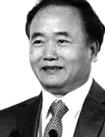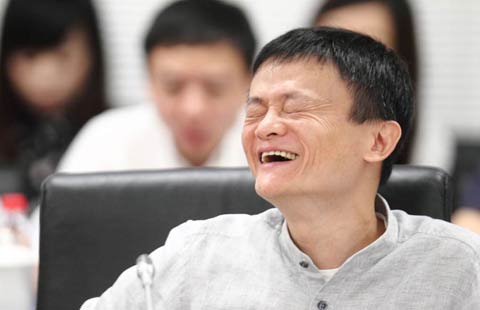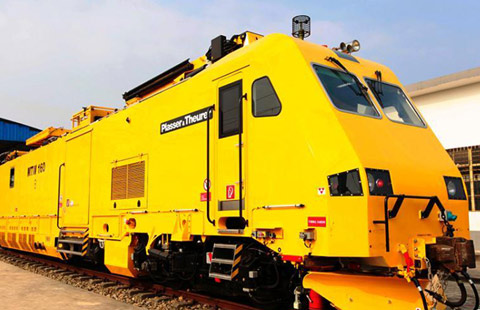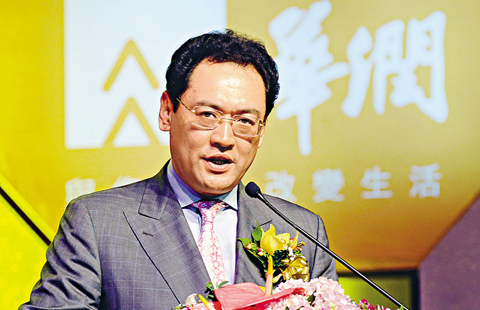Liquidity levels crimp PE activity
By CAI XIAO (China Daily) Updated: 2014-12-30 08:21
 |
|
Cao Heping, economist at Peking University |
"Since 2012, private equity activity in China has declined, and a major reason is the insufficient supply of liquid assets," said Cao, who is also chief author of a report on the development of the nation's private equity market that was released on Sunday.
Private equity usually means equity investments in non-public companies.
According to the report, it is difficult to raise the funds necessary for deals because lobal capital markets are underdeveloped. China should allow local governments to take a greater role in developing the capital markets and supporting market makers, the report said.
A market maker is a party that accepts the risk of holding certain securities to facilitate trading.
Cao said that the National Equities Exchange and Quotations, an over-the-counter market that is China's third bourse, is developing well, and similar exchanges should be set up in many cities to serve the nation's many micro-sized, small and medium-sized enterprises.
As of Dec 18, the NEEQ had 1,500 listed companies. Internet and high-technology companies listed at the NEEQ for more than one year are eligible to list on the ChiNext board, the nation's Nasdaq-style market.
The China Securities Regulatory Commission enacted a regulation last Friday that designates several categories of investment institutions to act as market makers in the NEEQ. Those firms include fund management houses, futures companies and securities investment consultants. The goal is to improve the NEEQ's liquidity, the agency said.
There are 33 regional equity exchanges in China, but they have no standing under the law so securities firms tend to avoid them. There are also no formal ties between these regional equity exchanges and the NEEQ or stock exchanges such as those in Shanghai and Shenzhen.
A spokesman for the Qianhai Equity Exchange said that the bourse has 4,328 listed firms, but the exchange is exploring ways to increase financing and investment activity.
"Online financing will be popular in 2015 in the Chinese PE market and funds from the public will exceed those from traditional financial institutions," said Cao.
In the first half of 2014, the size of the domestic crowdfunding market was estimated at 188 million yuan ($30.6 million). Of the total, equity crowdfunding totaled 156 million yuan.
Under the crowdfunding model, people can propose a project to be funded through a platform, with investors putting in money in return for receiving some product or service, or being given shares.
The CSRC also said last Friday that it is studying regulations for equity crowdfunding firms that target the public as well as those for qualified investors.
China's crowdfunding market could reach $46 billion to $50 billion by 2025, and the market for all developing countries could be $96 billion, according to the World Bank.
Forbes ranks investment firms
Chauncey Shey, managing director at SB China Venture Capital, was ranked first on the Forbes list of China top venture capitalists in 2014, the magazine reported on Monday.
Xu Xin, managing partner of Capital Today, ranked second, followed by Neil Shen, founding and managing partner of Sequoia Capital China.
Feng Tao from NewMargin Ventures and Andy Yan at SAIF Partners ranked fourth and fifth.
On Sept 19, Alibaba Group went public on the New York Stock Exchange, raising $25 billion. SB China Venture Capital invested $23 million in Alibaba and Taobao.com in 2000 and 2003. That investment is now valued at $24 billion.
JD.com raised $1.78 billion in its IPO on Nasdaq in May. Xu Xin had invested $18 million in the company. Her stake is now worth more than $2.8 billion.
According to Forbes, Sequoia Capital China was the top venture capital firm in 2014, followed by SB China Venture Capital, IDG Capital and Legend Capital.
- 'Just spend', Alipay tells shoppers
- High-speed railway linking Zhengzhou, Kaifeng starts operating
- US-listed Chinese shares poised for more gains in 2015
- Fast food chain probes reports of doctored expirations
- China creates new FTZs and expands old to facilitate reforms
- Top 10 happiest cities in China 2014
- Guiyang Free Trade Zone starts operating
- RMB exchange rate to be stable in 2015
















